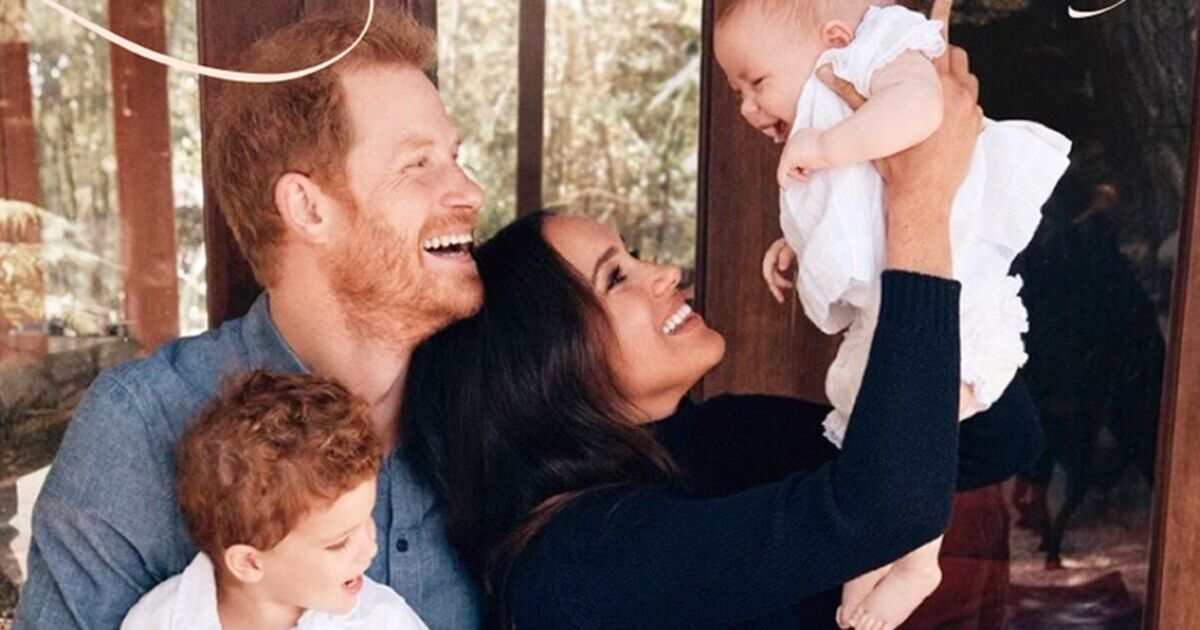Prince Archie and Princess Lilibet could one day play a critical role in smoothing over their father, Prince Harry’s, fractured relationship with the Royal Family, a British historian has claimed. The Duke of Sussex saw his relationship with the Firm go sour after he famously stepped down as a senior working royal alongside his wife, Meghan Markle, in 2020.
Harry and Meghan moved to the US for a new, financially independent life where they embarked on various business ventures. However, many of these ventures involved them making countless claims about their life within the Royal Family, most of which have not been commented on by their royal relatives.
This resulted in an ongoing rift between the two sides, with Harry now reportedly not speaking with his brother, Prince William, while still being distant from his father, King Charles.
Now, as the Duke is visiting his home country after months, sparking hopes for a possible meeting with his father, which could, in turn, pave the way for further peace talks in the future, a royal historian has weighed in on how Harry’s children, Archie and Lilibet, could evolve into a catalyst that could solve the royal rift.
Kate Williams, professor of Public Engagement with History at the University of Reading and royal historian, claimed that, while the possibility of the Sussex children forging any kind of relationship with the royal relatives in their younger years is highly unlikely, that could change in the future.
She wrote for the Telegraph: “There is, however, a rich tradition of friendship and support between adult royal cousins in Britain, which points to a way in which the fissure between the Waleses and the Sussexes might be bridged in future, should the younger generation seek to establish their own bond as they grow older.”
The history expert said that in the history of modern monarchy, “cousins have been a royal secret weapon”.
She gave the late Queen Elizabeth as an example, saying that when she ascended to the throne in 1952, she expanded the Firm by giving crucial roles to many of her 31 first cousins.
Prof Williams wrote: “The late Queen’s cousin, the Duke of Kent, and his wife, Katharine, who passed away last week at the age of 92, were prime examples of the powerful, enduring bond that can form between royal cousins, particularly when it is underpinned by a sense of public duty as well as personal devotion.
“At the same time, the Duke of Kent’s brother, Prince Michael of Kent, and sister, Princess Alexandra, have carried out numerous engagements over the years, as has Richard, Duke of Gloucester.”
She added: “All of these examples would suggest that there is much to gain for the monarch and the family members concerned, in enduring bonds between royal cousins.”
The historian even noted how close Prince William and Prince Harry are with their own cousins, particularly Zara Tindall and Peter Philips, Princess Beatrice, and Princess Eugenie.
But she argued that, while there may be little chance of Archie and Lilibet holidaying with Charlotte and Louis at Balmoral now, it could be “quite possible” for them to seek to strike a relationship with them when they are older.
Prof Williams said: “Cousins understand the unique situation of being royal – and they can always be trusted in a world where friends sell stories. So perhaps Archie and Lilibet will forge a bond with George, Charlotte and Louis.
“And perhaps one day the cousins will stand together on the balcony of Buckingham Palace, side by side with the future King George.”
